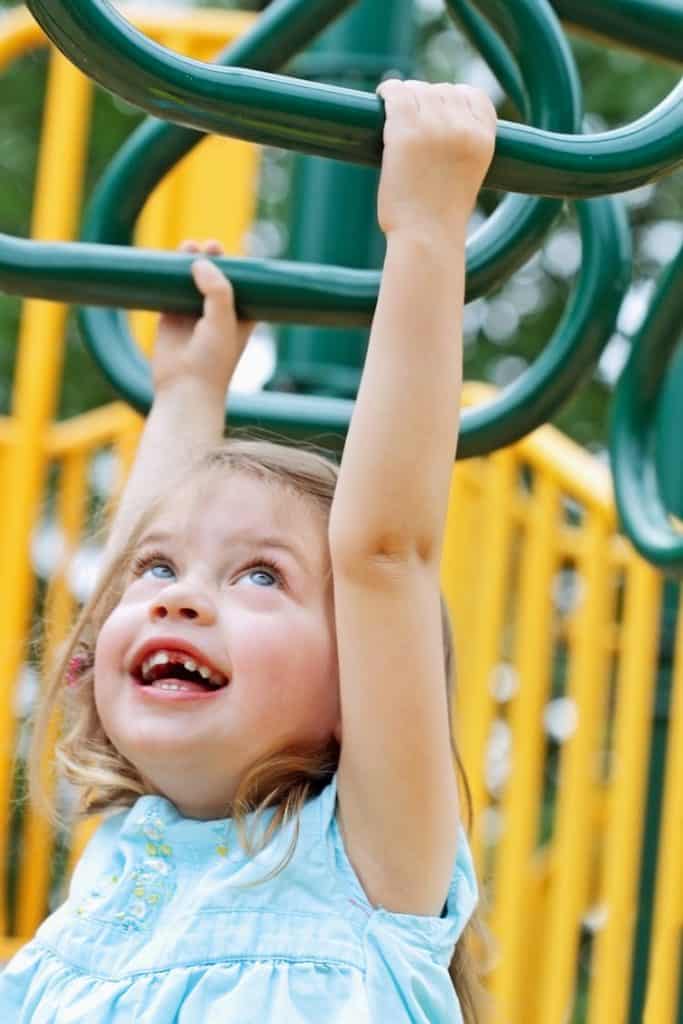 Being accident-prone is one thing that children (and their parents) often cannot avoid. No one wants to be the helicopter parent; never letting their kids out of their sight, making sure they never engage in risky activity whatsoever. Everyone has a childhood story about the time they fell out of a tree and broke their arm, or ran into a log when bike riding and went over the handlebars. Unfortunately, accidents are a by-product of kids having fun and we don’t want to stop all that fun just because of an outside chance of a minor injury.
Being accident-prone is one thing that children (and their parents) often cannot avoid. No one wants to be the helicopter parent; never letting their kids out of their sight, making sure they never engage in risky activity whatsoever. Everyone has a childhood story about the time they fell out of a tree and broke their arm, or ran into a log when bike riding and went over the handlebars. Unfortunately, accidents are a by-product of kids having fun and we don’t want to stop all that fun just because of an outside chance of a minor injury.
The direct medical cost of children suffering trauma and having accidents is estimated at approximately $250 million annually. The indirect costs, such as parents missing work to take care of their children as a result of trauma and accidents amounts to much more, somewhere in the vicinity of $1 billion annually.
Dental trauma as a result of childhood accidents is a big chunk of this cost and since we don’t want to stop our kids from playing footy or cricket, rolling down that big hill or playing on the monkey bars, it’s important we understand how to reduce the risk of dental trauma as a result of accidents and how to respond to this trauma if it occurs.
Prevention of Dental Trauma
As with all things medical, prevention is often the best cure. There are some obvious things you can do to protect your child’s teeth when they are engaging in physical activity. If they’re playing a contact sport (like football or rugby) or playing a non-contact sport where there is a risk of dental trauma (such as hockey or soccer), you can have them wear a mouth guard that has been fitted by a dental professional.
Each year, over five million teeth are lost due to a trauma that could have been prevented if a mouth guard was worn. Don’t make your children another statistic; two appointments with Dr Danyalak could save you from a lot of heartache and bad school photos down the track.
You can also do some simple things like choose a playground that has a soft surface, such as tanbark, sand or rubber. That way, if your kids fall over, a slightly softer surface might help prevent a little trip from becoming a big trip to the dentist.
What Do I Do if My Child’s Tooth Is Knocked Out?
In the situation that you child’s tooth is knocked out or looses a tooth, the most important thing to remember is that time is very important.
If a baby tooth is knocked out, all you really need to do is give the tooth socket a bit of a wash with clean running water, apply some gauze to the wound to stop any bleeding and take a trip to the dentist. In most cases, the baby tooth won’t be replaced because this will affect the growth of the next tooth, so all you have to do after your visit is leave the tooth out for the tooth fairy.
If your child loses a permanent tooth you need to:
- Find the tooth as quickly as possible and pick the tooth up by the crown, not the root, which holds the tooth in the mouth.
- You then need wash the tooth with milk or water and place it back in the socket, if possible.
- If you can’t get the tooth back in the socket, you should leave it in a glass of milk.
- In both cases, you need to take your child to the dentist as soon as possible. The quicker the dentist can look at your child’s tooth, the more chance there is that the tooth can be saved.
What If My Child’s Tooth Is Chipped?
Again, time is very important if your child suffers a chipped tooth as result of some dental trauma. You need to find the fragment as quickly as possible and place it in a glass of water. You should then make a visit to the dentist as quickly as possible. Depending on the trauma, Dr Danyalak may be able to glue the chip back on to the tooth. If this isn’t possible, there are still a variety of treatment options available.
Dental trauma as a result of an accident isn’t the end of the world; there is a solution to almost any problem. Private health cover and the Children’s Dental Benefits Schedule mean that treatment doesn’t have to be an unbearable financial burden. Accidents happen and the possibility of dental trauma is definitely not a reason to keep your children inside. Physical activity is an important factor in overall health and well being as well as development, so try and prevent trauma as much as possible and if an accident does happen, then now you know what to do.
CONTACT CARE DENTAL CAMBERWELL. FOR CHILDRENS DENTISTRY MELBOURNE
Contacting Camberwell dentists couldn’t be easier. You can:

